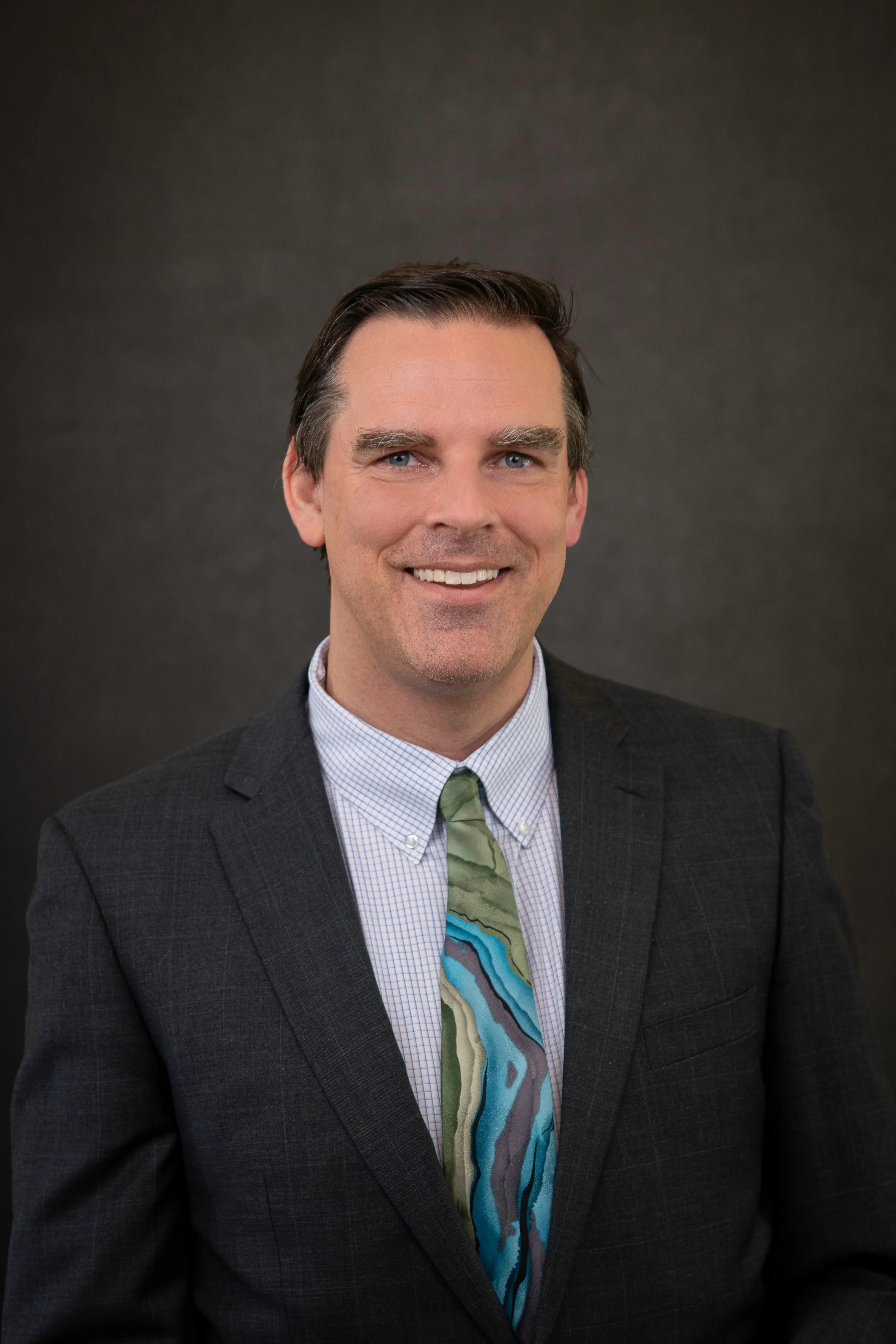In 2002, Rev. Jerad Morey was in lower Manhattan doing post-9/11 recovery as part of AmeriCorps (Opens in a new tab) , and he didn't expect to be "having the time of my life there as a service worker." The hours were long and the work was emotionally challenging, but it felt purposeful. Then, on Ash Wednesday of that year, something happened that changed how he felt about everything.
He was walking through a church near Ground Zero, reading sympathy cards that had been sent from around the world, when he suddenly felt insignificant and selfish for finding joy in his work amid such tragedy.
"It's on green construction paper, with 'I'm sorry' written in pencil on the cover. And I open it up, and on the inside it says, ‘God bless America,’ and there's a yellow squiggle around it like he's trying to give America this big hug. Beneath that, it says, 'Please keep trying; I don't want a war.' And it was signed: Josh M., 11. Some kid in Montreal."
That moment reading a child’s plea for peace came to define Jerad’s life’s work. Today, the 2024-2025 Obama United States Leader serves as director of strategic relationships at the Minnesota Council of Churches, where he leads peacebuilding initiatives that have reached more than 9,000 people across Minnesota, the Dakotas, and Wisconsin. We recently connected with him to reflect on his journey from that moment to his current mission of bridging divides and strengthening communities.
-
What does your work look like day-to-day, and what kinds of conflicts are communities bringing to you?
I serve in an extension ministry position as a licensed local pastor. My calendar is a lot of talking with communities experiencing conflict, walking them through, and connecting them to depolarizing conflict interventions. So that's talking with somebody who's like, "Well, we've got this challenging situation” either within their membership, if it's a campus or a congregation, or like in their broader community that's really starting to tear relationships up, and they're trying to figure out how we can bring some peace into that space.
There are a lot of communities that will come to us after maybe an incident of vandalism or notable harassment that might make the news. And they're trying to come to a better understanding of what it feels like to belong. We also work with communities on partisan-related topics. We had 400 people attend two conversations in the beginning part of this year that were both basically around where do we go from here? What does it look like for us to still be in community when we're so politically divided? Because people were having so many problems just talking about the aftermath of the election with each other, the implications of it, and the feelings that we all have around it without damaging friendships and damaging relationships.
That's where Respectful Conversations come into play—helping you to be able to not change your mind or anybody else's but to soften your heart towards the people with whom you disagree. We even had a state senator attend one, and he told the pastor hosting that conversation that it was the best conversation about politics that he'd ever been a part of.
-
Take me back to September 11, 2001. Where were you, and how did that day feel emotionally and spiritually?
On 9/11 itself, I was preparing to join the AmeriCorps National Civilian Community Corps. I was on my way to my job on the lunch shift as a waiter at the Green Mill in Bloomington, Minn. I was living in Minneapolis, and I turned on the radio, and I heard George W. Bush's voice saying, "This is an event that will change who we are as a nation." And at first, I thought that this was some kind of a commercial for a new Coke or something. And it was only as he continued talking and it started taking longer than a commercial that I woke up my mind enough to be like, "Wait, so what is happening?"
I got to work, and everybody was quiet and sedated, and all the TVs were on the same channel. The restaurant itself was in a business park, so we usually had a lot of business lunch customers, and everybody came in feeling somber, and there just wasn't a lot of conversation. It was a lot of folks just looking at the TVs.
One of the key moments that I remember for that day was when they made the announcement about the plane that crashed in Pennsylvania. And right after that, the radio DJ played Lee Greenwood's "Proud to be an American." Just that sense of sort of pride and solidarity and immediate respect for the sacrifice of so many for what could have been so much worse.
I remember feeling a strong sense of unity and shared misery and shared grief on the day itself. That first day really did provide a feeling of whether you were just some waiter or whether you were a fully suited businessperson or whether you were a passenger on an airplane or a radio DJ—that we were just all feeling the same emotions. That was a powerful sense of community in the midst of the horror and disbelief.
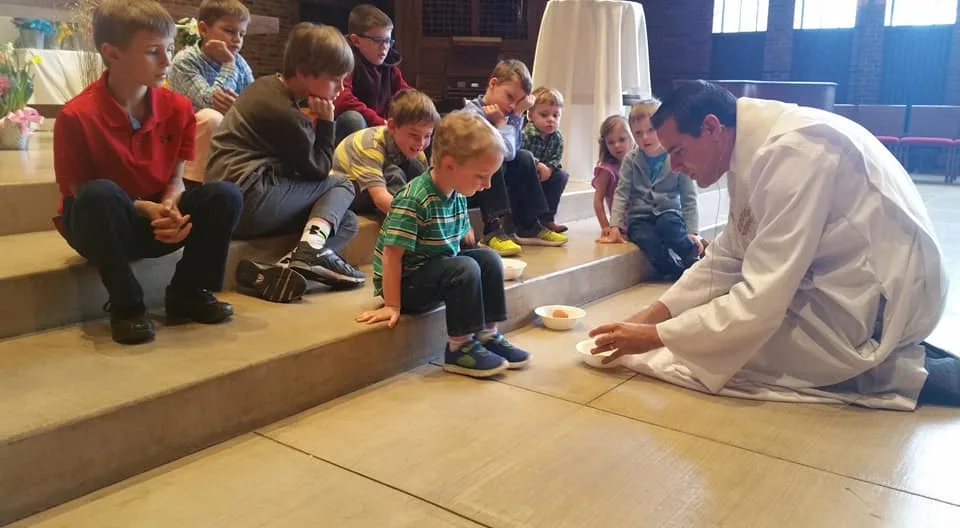
-
How did your faith shape your response to 9/11 and your subsequent work in peacebuilding?
My born-again experience happened on Ash Wednesday 1997. As I began embracing the idea that I might have a relationship with God, and this God that I know through Jesus, the world began to feel less like some random pool ball just knocking randomly off other pool balls and began to feel like there was sort of this pleasant mystery that was just behind everything. I began finding connections and goodness and joy in all these things that had previously been signs of isolation.
With 9/11, on that first day, those feelings of connectedness were affirmed in the moment because there was so much that I felt we were experiencing in common. But then as our nation began responding to 9/11, I became more aware of, like, “Oh wow. Even though we had the same initial experience, some folks are responding out of a lot of fear.” People started targeting out-groups of folks who didn’t look, pray, or live like them for violence and harassment.
When I read that card, "Please keep trying. I don't want a war.” I took that in part to be God saying, "Jerad, your job is to make sure that you do everything you can to try to make your country's in-group as inclusive as possible so that everybody can be in solidarity with each other and that we don't have these segments that end up hurting each other because we're trying to protect ourselves and we're both just so afraid."
-
What have you learned from doing interfaith bridge-building work that people should know?
Something that's not always obvious: when you hear something that challenges your own worldview or sense of identity, your body immediately shifts into a sense of physical danger, fight or flight, or freeze. And that makes it hard for you to actually listen and be curious about whoever is sharing that idea that you find threatening. Once you're able to take some deep breaths and calm your nervous system, that puts you in a position where you can listen to them and be curious about them and find out better where they're coming from.
And once they feel listened to and understood, then they're more ready, too, to hear your own story. They're more curious about you. They want to give you the same chance to be heard that you've given them.
The other thing is, when we imagine having an actual conversation with people whose views don't match ours at all, especially on a topic we feel very polarized about, we often imagine it turning into a yelling match and that it's not going to be worth the energy we put into it. And having done these group conversations now for 13 years with over 9,000 people, that happens like one one-thousandth percent of the time. The vast majority of the time, even though you don't expect it, you can rely on your basic humanity and the other person's basic humanity to have a good conversation.
-
How has The Obama Foundation Leaders Program supported your interfaith work?
Before the Leaders USA program, I recognized the uniqueness of the Minnesota Council of Churches' work, particularly in respectful conversations and community peacebuilding. I was expanding my national network but realized it lacked diversity. It was predominantly white and female, so I became more aware of my need to engage with people who didn't look or think like me. I also sought to connect with younger individuals, as my experiences and responses to global events, like the Gaza conflict, were very different from those of younger colleagues. This gap highlighted the need for more diverse conversations and relationships.
-
Given the current state of division in America, what gives you hope, and how can ordinary people embrace pluralism?
What gives me hope is how many people want to be engaged in the work of bridging and peacebuilding. When I tell people that I'm part of a group of 500 other organizations doing this stuff, I see how their faces relax and their shoulders kind of go down a little bit. Just knowing that there are so many organizations and so many groups in this country already trying to fix and stitch us back together.
I'm part of the Listen First Coalition (Opens in a new tab) , which is a group of over 500 groups doing some kind of depolarizing bridging work. Even though there are billions of dollars spent every two years to activate the part of us that divides us, and within the entire bridging community, there's maybe $200 million, at most, spent in support of the efforts that try to tie us together, there are still 80 percent of Americans who agree that the fact that we're so pulled apart is bad, and 80 percent who are like, "Yeah, show us how to bring us together."
As long as there are groups like Minnesota Council of Churches’ Respectful Conversations (Opens in a new tab) , and like all the other members of the Listen First coalition creating these opportunities for bridging and connection, then those 80-some percent of Americans who say they want to be able to do it will find an outlet. I welcome anybody who feels called to this work. Either plug into somebody who's already doing it—feel free to reach out to me at j.morey@mnchurches.org (Opens in a new tab) —or just go to the Minnesota Churches (Opens in a new tab) website or the Listen First website, or start your own thing, and then let me know what you started, because there's a lot of room. There is so much thirst and desire for real relationships. Our future is this: quenching this thirst for connection.
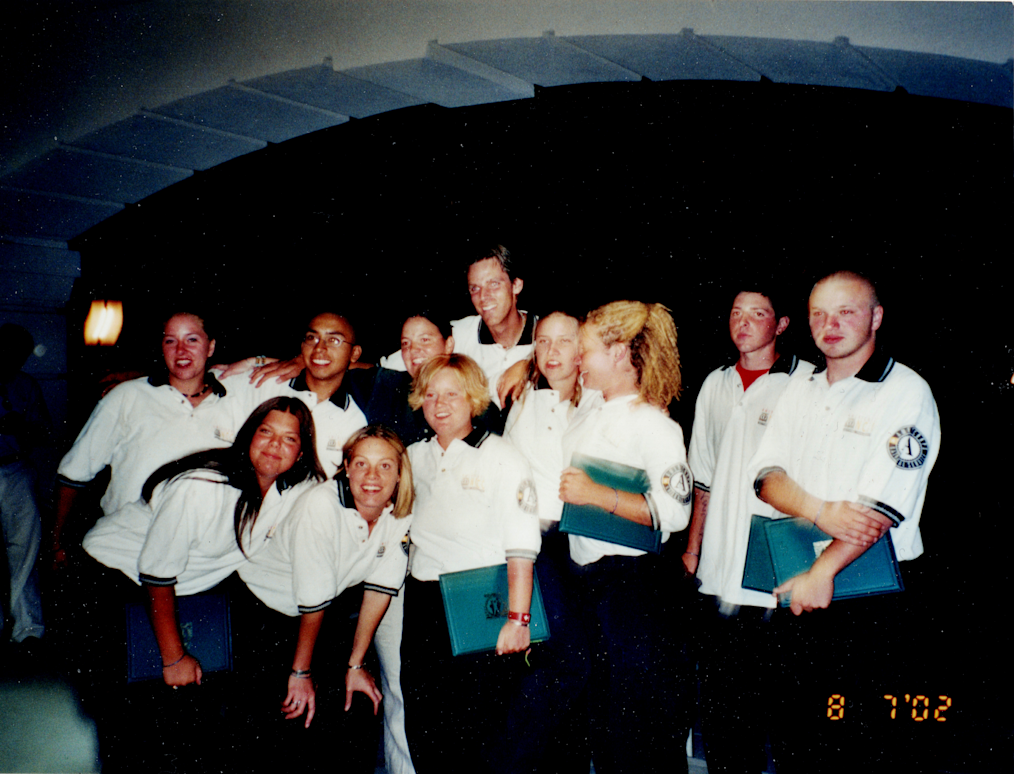
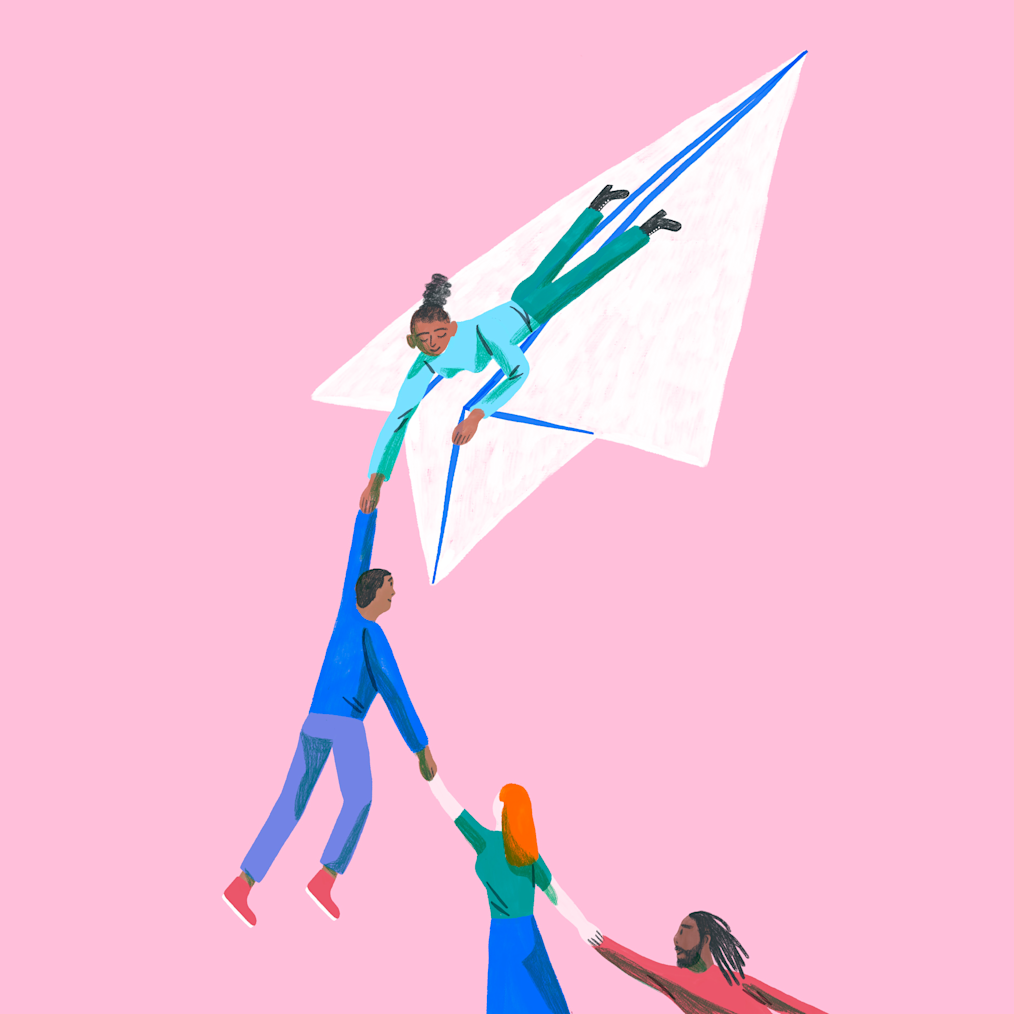
Sign up for the latest on the Obama Foundation
Explore more stories:
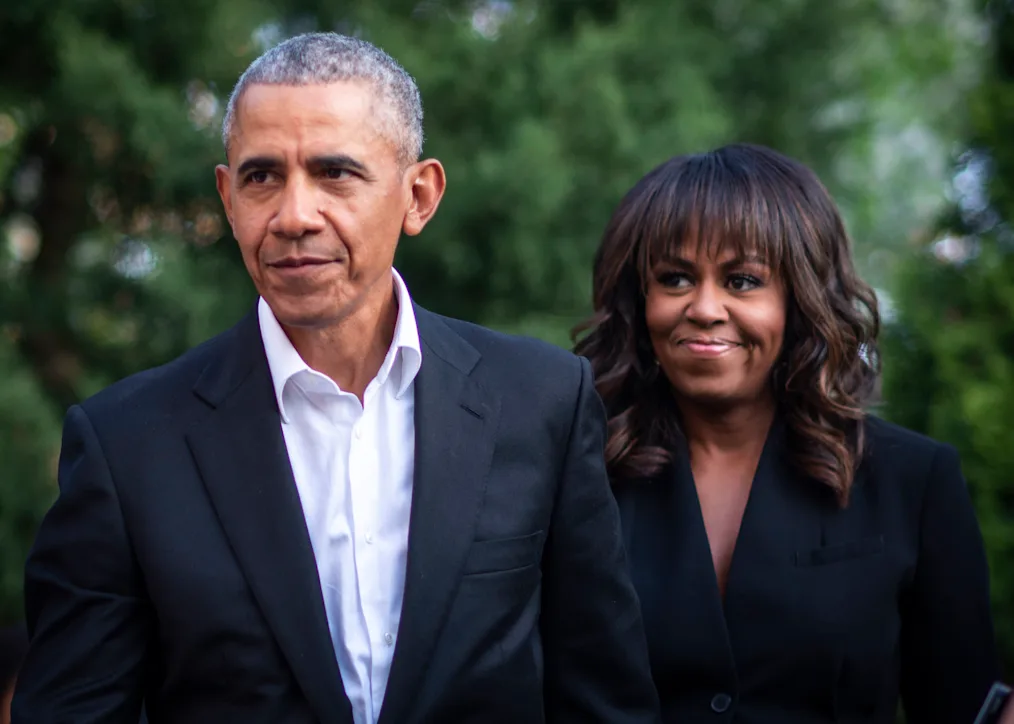
- Community Engagement
- MBK Alliance

- Stories
- Education

- Stories
- The Arts
